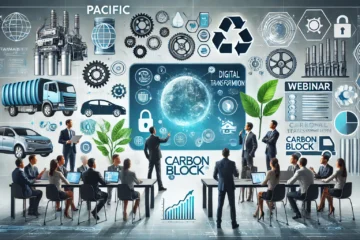The Obvious Importance of Decarbonization for All Industries
Decarbonization an Introduction
The process of reducing carbon emissions, has become a critical priority for industries worldwide. As the world grapples with the challenges of climate change, it is essential for businesses to take responsibility for their environmental impact. In this article, we will explore why it is crucial for all industries, how product carbon footprints can be dramatically reduced, and which roles within a company are most affected by and benefit from reduction of CO2 emissions.
The Significance of CO2 emissions reduction
It plays a vital role in mitigating the effects of climate change and achieving global sustainability goals. By reducing carbon emissions, industries can contribute to the overall reduction of greenhouse gases and limit the rise in global temperatures. This not only helps preserve the environment but also ensures the long-term viability of businesses.
Reducing Product Carbon Footprints
One of the key aspects of reducing CO2 emissions is the reduction of product carbon footprints. This involves assessing the entire lifecycle of a product, from raw material extraction to disposal, and identifying opportunities to minimize carbon emissions at each stage.
For industries with complex product structures and extensive supply chains, reducing product carbon footprints can be challenging. However, advancements in technology and the adoption of sustainable practices have made it increasingly feasible.
Companies can start by conducting a comprehensive carbon footprint assessment to understand the carbon emissions associated with their products. This assessment can help identify areas of improvement and guide the implementation of targeted strategies.
Implementing sustainable practices such as energy-efficient manufacturing processes, utilizing renewable energy sources, and optimizing transportation logistics can significantly reduce carbon emissions. Additionally, exploring alternative materials and designing products with a focus on recyclability and longevity can further contribute to your efforts.
Roles that are affected and benefit
Various roles within a company are affected, each with its own set of responsibilities and benefits.
1. Sustainability Managers: Sustainability managers play a crucial role in driving reduction of CO2 emissions efforts within organizations. They are responsible for developing and implementing sustainability strategies, setting emissions reduction targets, and monitoring progress. Decarbonization provides an opportunity for sustainability managers to showcase their expertise and contribute to the long-term success of their companies.
2. Supply Chain Managers: Supply chain managers are directly impacted as they oversee the sourcing and transportation of materials. They play a pivotal role in identifying sustainable suppliers, optimizing logistics to reduce emissions, and implementing circular economy principles. Supply chain managers can enhance the resilience and efficiency of their supply chains.
3. Product Development Teams: Product development teams are responsible for designing and creating sustainable products. Decarbonization provides an opportunity for these teams to innovate and develop environmentally friendly alternatives. By incorporating circular economy principles, renewable materials, and energy-efficient designs, product development teams can contribute to reducing the carbon footprint of their products.
4. Consumers and Investors: Your efforts are not limited to internal roles within a company. Consumers and investors are increasingly demanding sustainable products and investing in companies with strong environmental credentials. By prioritizing reduction of emissions, businesses can attract environmentally conscious consumers and secure investments from sustainability-focused investors.
Conclusion
Decarbonization is of utmost importance for all industries. By reducing carbon emissions and product carbon footprints, businesses can contribute to global sustainability goals while ensuring their long-term viability. Sustainability managers, supply chain managers, product development teams, and even consumers and investors all play a crucial role in driving and benefiting from emission reduction efforts. Reducing emissions is not only a responsible and increasingly regulatory measure (i.e. CSDDD), but also a strategic decision of great importance. The sooner this decision is made, the sooner it can generate a competitive advantage and pave the way for a more sustainable and prosperous future.


